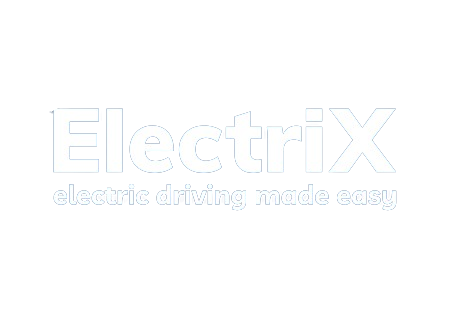In case you missed it see what’s in this section
Let's Talk
Your Total Guide To community
The Umbrella Project
The Umbrella Project, also known as The Neurodiversity Umbrella Project is a visual uplifting representation of all the different minds that we have here in the UK. The project works to change the perception of neurodiverse/neurodivergent people and celebrates the many strengths that come from thinking differently.
The Umbrella Project 2018 captured the hearts and minds of the public world wide, attracting over 30 million media hits and replications popping up in Dubai, Argentina, Spain, Romania, Czech Republic and the USA. In 2019, participating schools across the UK have installed an Umbrella art display of their own. With Merseyside, Salford, Manchester and Heathrow, along with the support of local councils and businesses - creating a dynamic project to ensure that our cities are ‘child friendly’ and creates places of opportunity for every child to be happy, healthy and achieve their potential. The 2019 Umbrella Project celebrates the gifts, talents and employability of those who are neurodiverse.
The project is part of a wider educational project to celebrate neurodiversity, raise awareness and challenge the stigma and discrimination that unfortunatey takes place. The Umbrellas celebrate the unique gifts of every child. Each Umbrella is signed by a child stating “My SuperPower Is”...
Each and Every Umbrella Project installation helps to raise awareness and understanding of neurodiversity. Where thousands of colourful Umbrellas are strung together over public spaces, in schools and in company buildings all around the nation. One in Five people have a neurodevelopmental condition and each display is designed to represent that one in Five.
Now many people will not have heard of these Neurodevelopmental conditions, so we have put together some information about each condition, so that you and I can have a better understanding of how different a Neurodiverse brain works:
ADHD
ADHD stands for Attention Deficit Hyperactivity Disorder. It is a medical condition, where a person with ADHD has differences in brain development and brain activity that affect attention, the ability to sit still and self-control. ADHD can affect a child at school, at home and in friendships. Children with ADHD may be inattentive, Hyperactive and Impulsive.
Autism
Autism is a lifelong developmental disability. It affects how people communicate and interact with the world. One in 100 people are on the autism spectrum and there are around 700,000 autistic adults and children in the UK. Autism is a spectrum condition and affects people in a range of ways. Just because a child or adult is autistic doesn't mean that they don't have their own strengths and weaknesses. People with autism have difficulty with social communication and interaction challenges, repetitive and restrictive behaviour, over or under sensitivity to lights, sounds, taste or touch, high focus on interests and hobbies and extreme anxiety.
Dyslexia
Dyslexia is a common learning difficulty. It mainly causes problems with reading, writing and spelling. It is a specific learning difficulty, this means that it causes problems with certain abilities used for learning. Unlike a learning Disability, a person with dyslexia’s intelligence is not affected. It is estimated that 1 in every 10 people in the UK have some degree of dyslexia. Dyslexia is a lifelong difficulty that can present many challenges on a daily basis.
Dyspraxia
Dyspraxia is also known as Developmental Coordination Disorder (DCD). It is a common disorder that affects movement and coordination. Dyspraxia has no effect on a person's intelligence, however it can affect coordination skills - such as tasks requiring balance, playing sports or learning to drive. Dyspraxia can also affect fine motor skills such as writing and using small objects. Dyspraxia can affect how new skills are learnt, thinking and remembering information, daily living skills - dressing or preparing meals, the ability to write, type, draw and grasp small objects - how you function in social situations, how you deal with your emotions and time management, planning and personal organisation skills.
Dyscalculia
Dyscalculia is a condition that affects the ability to acquire arithmetical skills. Dyscalculic learners may have difficulty understanding simple number concepts, lack an intuitive grasp of numbers and have problems learning number facts and procedures. It is estimated that dyscalculia is likely to occur in 3%- 6% of the population. DSM-5 defines Dyscalculia as a specific learning disorder, an impediment in mathematics, showing problems with number sense, memorisation of arithmetic facts, accurate and fluent calculation and accurate mathematical reasoning
Tourette's Syndrome
Tourette’s syndrome is a condition that causes a person to make involuntary sounds and movements, these are referred to as tics. Tics usually start during childhood, but can usually improve over several years and sometimes may go away completely. There is no cure for tourette’s syndrome, but treatment can help to manage symptoms. People diagnosed with tourette's syndrome have a combination of physical and vocal tics. Some of the physical tics are - blinking, eye rolling, grimacing, Shoulder shrugging, jerking of head or limbs, jumping, twirling and touching objects or other people. Some of the vocal tics are - Grunting, throat clearing, whistling, coughing, tongue clicking, animal sounds, saying random words and phrases and swearing.
All of these conditions fall under the Umbrella term of neurodiversity.
Weather in Bristol
Listings
















